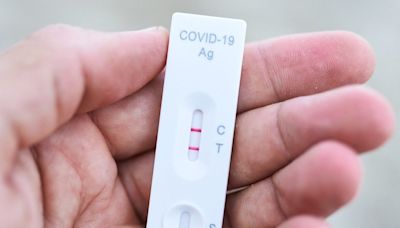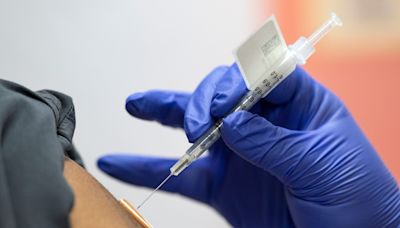Search results
Feb 6, 2023 · What You Need to Know. New variants of SARS-CoV-2, the virus that causes COVID-19, will continue to occur. CDC coordinates collaborative partnerships which continue to fuel the largest viral genomic sequencing effort to date. The Omicron variant, which emerged in November 2021, has many lineages.
Sep 1, 2023 · The World Health Organization (WHO) names new coronavirus variants using the letters of the Greek alphabet, starting with the Alpha variant, which emerged in 2020. Below is a list of—and information about—some of the variants that have been top-of-mind.
Jun 28, 2024 · To identify variants, scientists map the genetic material of viruses (known as sequencing) and then look for differences between them to see if they have changed. Since 2020, SARS-CoV-2, the virus that causes COVID-19, has been spreading and changing globally.
Variants of severe acute respiratory syndrome coronavirus 2 ( SARS-CoV-2) are viruses that, while similar to the original, have genetic changes that are of enough significance to lead virologists to label them separately. SARS-CoV-2 is the virus that causes coronavirus disease 2019 (COVID-19).
Throughout the COVID-19 pandemic, many variants of SARS-CoV-2 have been found in the United States and globally. Scientists use multiple classification systems to describe and communicate similarities and differences between SARS-CoV-2 viruses.
Nov 15, 2023 · In late 2023, the World Health Organization listed nine variants as circulating at the time. More than 50 variants have been identified; although some are no longer spreading. COVID variants...
- www.who.int
- › Activities
Mar 27, 2024 · From May 2021 onwards, WHO began assigning simple, easy-to-say labels for key variants. Considerable progress has been made in establishing and strengthening a global system to detect signals of potential VOIs or VOCs and rapidly assess the risk posed by SARS-CoV-2 variants to public health.
- www.who.int
- › Newsroom
- › Questions and answers
- › item
Nov 20, 2023 · What are variants of SARS-COV-2, the virus that causes COVID-19? 2. What is the difference between variants under monitoring, variants of interest, and variants of concern? 3. What can I do to protect myself from SARS-CoV-2 variants? 4. How can we stop new variants from emerging? 5. Do COVID-19 vaccines protect against newer virus variant?
Jun 21, 2024 · Concern over variants, sometimes called strains, of the virus that causes COVID-19 is based on how the virus might change. A virus could get better at infecting people, spread faster or cause people to get sicker. As a virus infects a group of people, the virus copies itself.
- www.who.int
- › …
- › Information for the public
Jul 19, 2022 · A variant is where the virus contains at least one new change to the original virus. Some variants of the coronavirus, such as Delta and Omicron, are spreading more easily between people. Last updated: 2 August 2023.



